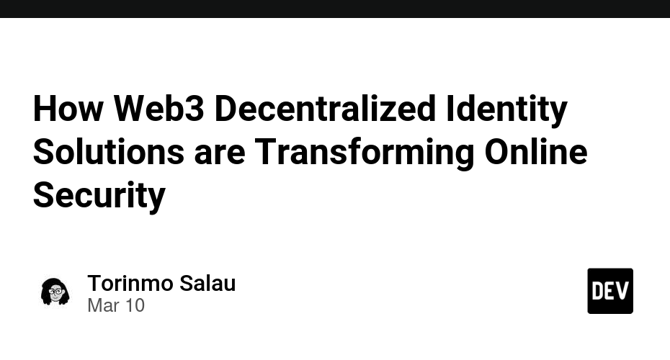Dev
1M
121

Image Credit: Dev
How Web3 Decentralized Identity Solutions are Transforming Online Security
- Web3 and decentralized identity solutions are reshaping online security by empowering users to control their personal information securely.
- Key features of Web3 decentralized identity solutions include Self-Sovereign Identity, Decentralized Identifiers, Verifiable Credentials, and the use of Blockchain and Smart Contracts.
- Self-Sovereign Identity enables users to directly own and manage their digital credentials, enhancing privacy and control.
- Decentralized Identifiers ensure that personal information is not tied to central entities, providing security and privacy.
- Verifiable Credentials allow secure sharing of specific information without exposing unnecessary details, enhancing trust and transparency.
- Smart contracts automate identity verification processes, enhancing security and enabling users to control access to their data.
- Web3 decentralized identity solutions strengthen online security by eliminating central points of attack and improving privacy and control.
- They also reduce risks like phishing and credential theft, offer interoperability across platforms, and enhance security in sectors like DeFi, healthcare, and government applications.
- Real-world examples like Polygon ID, Fractal ID, and Stripe Identity showcase the practical implementation and benefits of decentralized identity solutions.
- In conclusion, Web3 decentralized identity solutions play a vital role in creating a safer and more user-centric digital environment by shifting control back to individuals.
Read Full Article
7 Likes
For uninterrupted reading, download the app